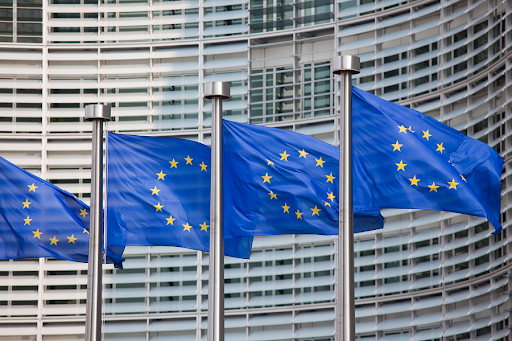EU citizens continue to feel strong solidarity with Ukraine and support measures to help the Ukrainian people, according to the Eurobarometer survey published by the European Commission on Thursday.
The assessment published on the occasion of the first anniversary of the Russian offensive launched against Ukraine reveals that 91 percent of the respondents agree with the humanitarian aid provided to Ukraine, and 88 percent support the reception of people fleeing the war. Financial support for Ukraine is approved by 77 percent of respondents, while 74 percent of respondents agree with economic sanctions against the Russian government, companies and individuals. 67 percent of Europeans still support a ban on Russian state-owned media services, and 65 percent agree with EU funding for the purchase and delivery of military equipment to Ukraine. Overall, 56 percent of European citizens remain satisfied with the European Union's response to the Russian invasion of Ukraine.
The survey also points out that a large majority of Europeans support the acceleration of the energy transition. According to 84 percent of respondents, the EU should reduce its dependence on Russian energy sources as soon as possible. 85 percent of the respondents are convinced that increasing the energy efficiency of buildings, transport and goods will reduce dependence on energy producers outside the EU.
The assessment of the situation of the European economy has remained unchanged since the summer of 2022: 40 percent rated it as "good" and 51 percent as "bad". Support for the euro remains at a high level, at 71 percent in the EU as a whole. 62 percent of those who took part in the survey said that they are optimistic about the future of the EU. A total of around 26,500 EU citizens took part in the poll conducted by Eurobarometer in 27 Member States.
Source: MTI
Civilians. Info:
So, the majority of the residents of the European Union are satisfied with the assistance provided to Ukraine, the sanctions against the Russians and are optimistic about the future of the EU. This would be fine if I could ignore who commissioned the survey and how many people were interviewed. Of course, these are called representative surveys are multiplied, divided, squared and the final result is announced based on who knows what kind of mathematical hocus pocus. However, this 26,500 respondents projected for the entire Union is not insignificant, but cannot even be measured in thousandths compared to the population of the 27 member states, which is approximately 447 million.













